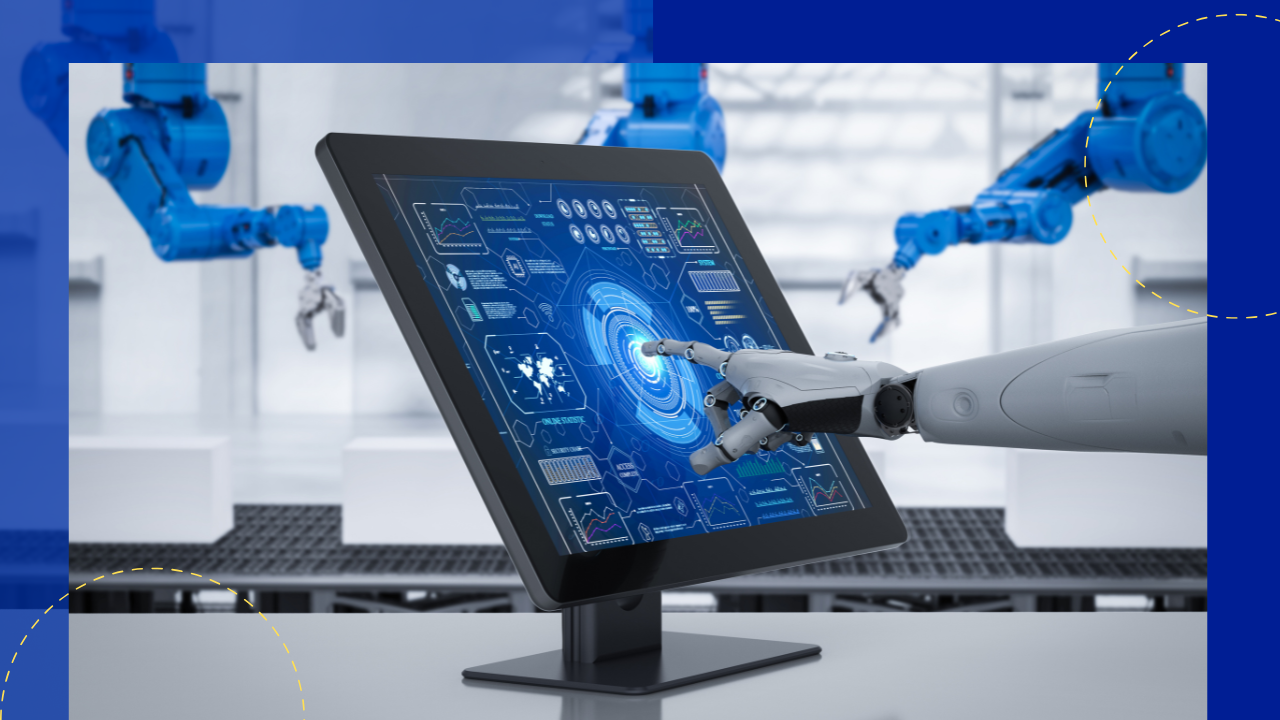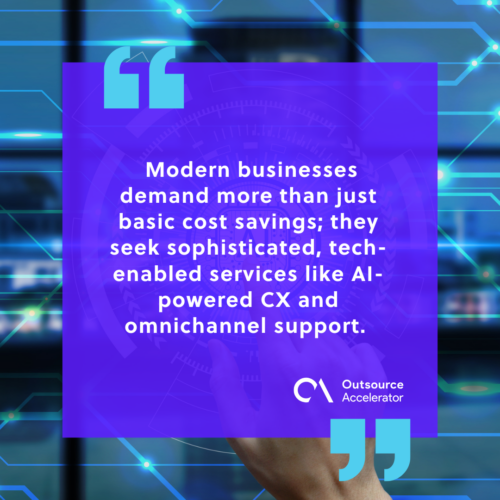The imperative of BPO tech adoption: Redefining efficiency and service

The landscape of business process outsourcing (BPO) is undergoing an extensive transformation. No longer is it simply about labor arbitrage; it’s about delivering superior value, exceptional efficiency, and seamless service in a rapidly digitizing world.
This shift underscores the critical importance of BPO tech adoption – the strategic integration of advanced technologies by BPO firms to enhance every facet of their operations and service delivery.
In the 543rd episode of the Outsource Accelerator Podcast, Dr. Sachin Paithankar from Imperative Business Ventures explains how his company aims to provide tech-based outsourcing.
This article delves into why embracing technology is no longer optional for BPOs. It explores the core drivers, the key technologies reshaping the industry, and the exciting future that awaits firms committed to technological advancement.
Driving forces behind BPO tech adoption
The necessity for robust BPO tech adoption stems from several interlocking pressures that are redefining industry standards and client expectations:
- Evolving client expectations – Modern businesses demand more than just basic cost savings; they seek sophisticated, tech-enabled services like AI-powered CX and omnichannel support.

- Competitive differentiation – Firms leveraging advanced tech for superior outcomes and faster turnaround times gain a significant competitive edge over less innovative players.
- Operational efficiency & cost control – Automating tasks and streamlining workflows leads to substantial reductions in operational expenditure and boosts turnaround times, directly impacting profitability.
- Data security & compliance – With increasing concerns over data security and stringent regulations, technology provides the essential frameworks for robust protection and compliance.
5 key technologies driving BPO tech adoption
The transformation of the BPO sector is powered by the strategic integration of several key technologies:
1. Artificial Intelligence (AI) and Generative AI (GenAI)
AI is a game-changer, acting as a powerful complement to human efforts rather than a replacement. Dr. Sachin confidently states that AI is “ultimately going to complement” people and business, shifting the focus from a “number game” to a “quality game.”
AI excels in initial information gathering and automating routine customer interactions through chatbots and conversational AI.
This allows human agents to focus on complex queries and empathetic interactions. They can leverage AI to augment their capabilities and enhance overall service quality.

2. Robotic Process Automation (RPA) and automation
RPA is at the forefront of driving operational efficiency. By automating routine and highly repetitive processes (like data entry, claims processing, or customer onboarding), RPA significantly reduces manual effort and error.
As seen with Imperative, automation drastically improved customer onboarding from 45 minutes to just 3 minutes. This not only cuts costs but also massively boosts throughput, enabling BPOs to manage significantly higher volumes with the same number of staff.
3. Cloud-based solutions and digital platforms
The move to the cloud provides BPOs with unparalleled scalability and flexibility. Cloud platforms enable BPOs to rapidly expand or contract their operations based on client demand without heavy capital expenditure on physical infrastructure.
They also facilitate remote work models, which are crucial for maintaining business continuity and offering work-life balance across different time zones. These platforms underpin the modern, agile BPO operation.
4. Data analytics and business intelligence
Leveraging robust data analytics tools is central to intelligent BPO tech adoption. These tools enable BPOs to collect, process, and analyze vast amounts of operational and customer interaction data.
This provides deep insights into performance metrics, customer behavior, and process bottlenecks. Such insights allow BPOs to make data-driven decisions that improve service quality, optimize resource allocation, and identify new revenue opportunities.
The ability to maintain quality and gain actionable insights through technology is a clear differentiator.
5. Omnichannel solutions
It’s important to provide a unified experience in a time when customers interact over multiple touchpoints. Omnichannel solutions integrate these diverse channels into a single view for agents, ensuring consistency and efficiency.
This holistic approach to customer interaction is fundamental to modern CX and relies heavily on integrated technologies.
The future of BPO and technology
The trajectory of BPO tech adoption points towards a future where technology is not just an enabler but the very core of the industry’s identity.
Industry evolution
The BPO industry is poised to become “completely tech-driven,” with AI, generative AI, and advanced automation as its central pillars. While people will remain integral, their roles will be increasingly augmented and focused on higher-value tasks that complement AI’s strengths.
Pricing model shift
The traditional FTE (Full-Time Equivalent) pricing model is expected to evolve.
Dr. Sachin predicts that in “another 10 years time, [the] FTE model will get changed to a transaction based model.” This shift will be driven by clients’ desire to pay for “value” and “save the cost,” linking pricing directly to measurable outcomes rather than hourly input.
This aligns with BPOs offering a “combined solution” (technology, people, infrastructure) and charging a “transaction piece.”
Market dominance
The future market will favor outsourcing firms that proactively adopt and integrate technology into their service offerings. Dominant players will be those who “build their model and start offering” combined technology and services, understanding client problems holistically.
Product companies selling technology alone will struggle. As Dr. Sachin observes, “Customers don’t want dependency [to] purchase a technology from A and [then hire] B” to manage services.
The integration of services with technology by outsourcing firms will make a “real difference in the industry.”
The imperative for BPO tech adoption is undeniable. It’s a strategic response to evolving client demands, fierce competition, and the relentless pursuit of efficiency and security.
Firms that prioritize strategic BPO tech adoption are the ones poised to lead the industry into its next era of innovation and growth.







 Independent
Independent




